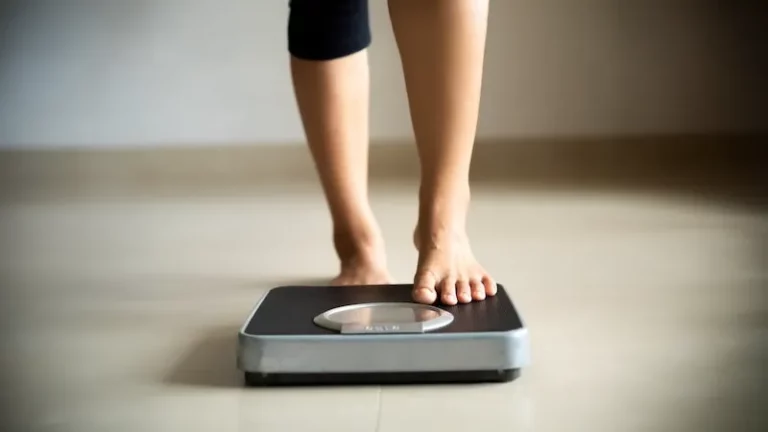Do CBD Tablets Help With Weight Loss
CBD, or Cannabidiol, is a term that’s been buzzing around health circles for a while now. But what exactly is it? CBD is one of the many compounds found in the cannabis plant, but unlike its cousin THC, it doesn’t get you “high”.
Instead, it interacts with our body’s endocannabinoid system, a complex network that plays a role in regulating various physiological processes.
The difference between CBD and THC is crucial. While THC is psychoactive and can alter your state of mind, CBD is non-psychoactive, meaning it won’t give you that “stoned” feeling. Instead, it’s been lauded for its potential therapeutic benefits.
- The endocannabinoid system is a fascinating part of our biology. It’s involved in regulating mood, appetite, pain, and more.
CBD interacts with this system, which is why it’s believed to have such a wide range of potential benefits. - Now, one of the burning questions on everyone’s mind is: Can CBD help with weight loss? It’s a topic that’s been gaining traction, and in this article, we’ll delve deep into the science behind it.
- To give you a sneak peek into what we’ll be discussing:
- The relationship between CBD and weight loss
- The latest research on the topic
- How to choose the right CBD product for you
CBD Oil and Its Connection to Weight Management
CBD oil has been traditionally used for a myriad of health concerns, from managing stress and anxiety to alleviating chronic pain. But recently, there’s been a surge in interest regarding its potential role in weight management.
Emerging research suggests that CBD might play a role in weight loss. But how?
It’s believed that CBD can influence factors that are directly associated with weight gain. For instance, stress and anxiety can lead to overeating or unhealthy eating habits.
By potentially alleviating these issues, CBD might indirectly support weight loss.
Furthermore, the endocannabinoid system, which CBD interacts with, plays a role in regulating appetite. Some studies suggest that CBD can influence this system to suppress appetite, which can be beneficial for those looking to reduce their calorie intake.
Delving into the Research
Research into CBD and weight loss is still in its infancy, but there are some promising findings. A 2015 study linked obesity with chronic pain, suggesting that CBD’s pain-relieving properties might indirectly support weight loss efforts.
Another study in 2018 delved into the endocannabinoid system’s role in food intake and inflammation. The findings hinted at CBD’s potential to regulate appetite and reduce inflammation, both of which are crucial for weight management.
One of the most exciting areas of research is CBD’s influence on the browning of fat cells. Brown fat is a type of fat that burns energy, and increasing its presence in the body can boost calorie burning.
Some studies suggest that CBD might promote this process, further supporting its potential role in weight management.

Choosing the Right CBD Product
Regarding CBD for weight loss, it’s essential to note that not all products are created equal. While we won’t be recommending specific brands, we’ll provide you with some criteria to help you make an informed decision.
Quality is paramount. Always opt for CBD products that have undergone third-party testing and come with a Certificate of Analysis (COA).
This ensures that you’re getting a product free from contaminants and has the stated amount of CBD.
Additionally, consider the brand’s reputation and transparency. Companies that are open about their sourcing, manufacturing processes, and testing are more likely to produce high-quality products.
Different Types of CBD Oil and Their Ingredients
CBD products come in various forms, from isolates to full-spectrum oils. CBD isolate is the purest form, containing only CBD.
Broad-spectrum CBD contains other cannabinoids but no THC, while full-spectrum CBD includes all the cannabinoids, including a trace amount of THC.
Apart from the type of CBD, also consider the carrier oils and additional ingredients. Some products might contain essential oils or other additives for added benefits.
For those who aren’t keen on oils, there are alternative products like topicals and capsules. Each has its own set of advantages, so choose based on your preferences and needs.
How to Use CBD Oil for Weight Management
There are various methods to use CBD oil, but the most common are sublingual administration** (placing it under the tongue) and ingestion. The method you choose can influence the dosage, so it’s essential to follow the product’s recommendations.
Factors like your weight, metabolism, and the reason for using CBD can all influence the ideal dosage. It’s always a good idea to start with a lower dose and gradually increase it until you find what works for you.
CBD and Metabolism
One of the ways CBD might influence weight is by affecting metabolism. The endocannabinoid system (ECS) plays a crucial role in regulating various bodily functions, including appetite and metabolism.
CBD interacts with the ECS, potentially influencing metabolic rates and energy balance.
Appetite Suppression
While cannabis is often associated with increased appetite (the “munchies”), CBD might have the opposite effect. Some studies suggest that CBD could suppress appetite, leading to reduced food intake.
However, more research is needed to confirm these findings.
Fat Browning
CBD might promote the conversion of white fat cells, which store energy, into brown fat cells, which burn energy. Brown fat cells are more active than white fat cells, leading to increased calorie burning.
This process, known as “fat browning,” could potentially aid in weight loss.

Reducing the Risk of Metabolic Disorders
There’s a close link between obesity and metabolic disorders like high blood pressure, high cholesterol, and type 2 diabetes. Some studies suggest that CBD could reduce the risk of these disorders by reducing inflammation, improving insulin sensitivity, and combating oxidative stress.
Safety, Side Effects, and Legal Considerations
According to the World Health Organization, CBD is generally safe. However, like any supplement, it can have side effects.
Some people might experience drowsiness, changes in appetite, or dry mouth.
It’s also essential to be aware of potential interactions with medications. Always consult with a healthcare professional before starting any new supplement, especially if you’re pregnant or nursing.
In the UK, the legal status of CBD is based on its THC content. Products with less than 0.2% THC are legal, but always ensure you’re purchasing from a reputable source to stay on the right side of the law.
Things to Consider
Before incorporating CBD tablets into your weight loss regimen, it’s essential to:
- Consult with a Healthcare Professional: Especially if you’re on medication, as CBD might interact with certain drugs.
- Purchase from Reputable Sources: Ensure you’re getting high-quality CBD products. ACCESS CBD® is a trusted source for CBD tablets in the UK.
- Set Realistic Expectations: While CBD might aid in weight loss, it’s not a magic pill. A balanced diet, regular exercise, and a holistic approach to health are crucial.
Conclusion
Diet and exercise remain the cornerstones of weight loss. However, CBD might play a supportive role, especially for those dealing with pain, anxiety, or sleep issues that can hinder their weight loss journey.
Always remember that CBD is not a magic bullet. It’s a tool that can be used with a healthy lifestyle to support your weight loss goals.
Before making any decisions, it’s crucial to consult with healthcare professionals. They can provide guidance tailored to your specific needs and circumstances.
For further reading, check out these blogs:



